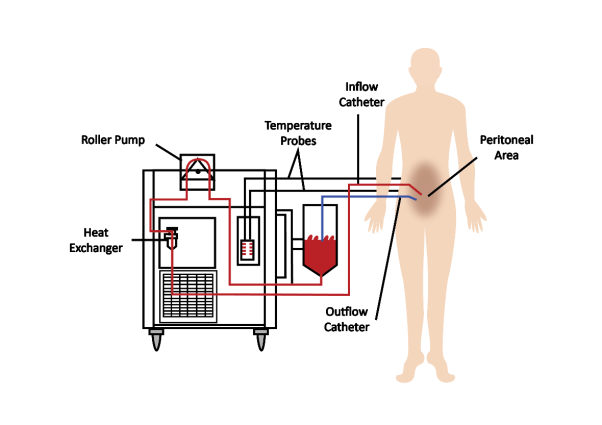
Following tumour removal, some cancers can recur after a period of remission. Recurring cancers are often found in the abdomen of the patient. Hyperthermic intraperitoneal chemotherapy (HIPEC) is the latest treatment to target recurring cancer in the abdomen. Besides being more effective than systemic chemotherapy, HIPEC causes less undesirable side effects to the patient. Patients who undergo HIPEC have shown to have longer remission periods and higher survival rates.

What is HIPEC?
HIPEC is a procedure that delivers the chemotherapy treatment directly to the abdominal cavity following tumour removal surgery. HIPEC is increasing widely used in major oncology centres around the world. It is frequently used to treat recurring colorectal cancers in Malaysia.
Recurring cancers in the abdomen are difficult to treat conventionally. Systemic chemotherapy often has limited effectiveness for treating recurring cancers in the abdomen as the chemotherapeutic agent is partly digested by the liver before it can reach the cancer cells. As a result, the chemotherapeutic agent dosage delivered to the cancer cells is greatly reduced and loses its effectiveness. Increasing chemotherapeutic agent dosage will cause more negative side effects to patients, making it difficult for them to complete the treatment. The HIPEC treatment overcomes this limitation by delivering high-dose chemotherapeutic agent directly to the cancer cells in the abdomen.
The HIPEC procedure is usually done as a last step in a cytoreductive surgery of the tumour. The whole process with surgery and HIPEC combined takes 6 – 8 hours. The patient is required to stay in the hospital for 7 – 10 days post-operation. During HIPEC, a high dosage of heated chemotherapeutic agent is delivered into the abdominal cavity. The duration of HIPEC procedure is 90 to 110 minutes. Since the chemotherapy is contained in the abdomen only for a short duration, little agent is absorbed by the whole body, thus avoiding some negative side effects of conventional chemotherapy.
Furthermore, HIPEC allows the cancer cells to have direct exposure to the chemotherapeutic agent, thus increasing the effectiveness of treatment. Heating the chemotherapy agent to a temperature of 38-degree Celcius enhances the cancer cells’ permeability to the agent that allows the cancer cells to be eliminated by the agent more effectively. Some common negative side effects due to HIPEC are constipation, nausea, and surgical site infection. However, these can be treated non-surgically.
Patient who are eligible to undergo HIPEC treatment are:
(Patients with cancer that has spread to the lungs, brain and bones are not suitable.)

Wait a minute

Wait a minute